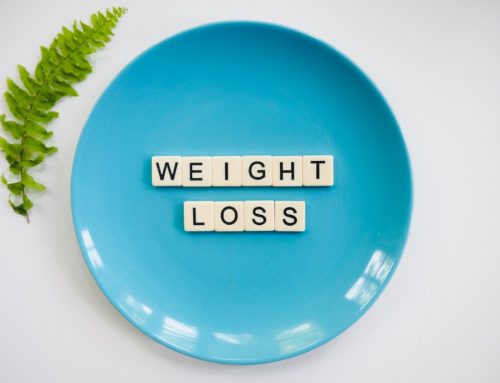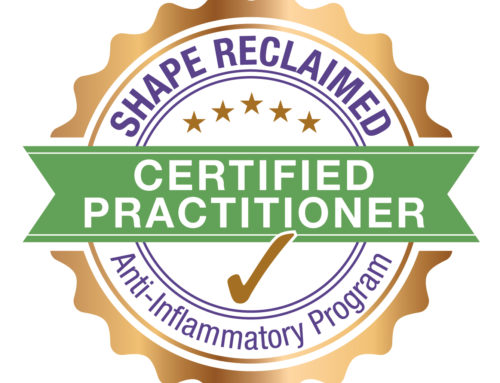Stress. It is the main source of “dis-ease” in the body, mind, and spirit. It creates a tremendous biochemical burden on the body, ultimately creating disease. At a basic level:
- Stress makes it harder to lose weight.
- Stress contributes to degenerative diseases.
- Stress upsets digestion.
- Stress makes you tired.
Here’s how stress makes it harder to lose weight:
Increases cortisol – leading to weight gain and the inability to lose weight or build muscle.
Decreases thermic efficiency and muscle mass – diminishes your ability to burn calories.
Increases insulin resistance –your cells become less and less responsive to insulin, leading to weight gain, heart disease, diabetes, and kidney disease.
Here’s how stress contributes to degenerative diseases:
Increases inflammation – the basis of many diseases.
Increases LDL cholesterol, serum triglycerides, and blood platelet aggregation – major risks for heart disease.
Decreases kidney function – means toxicity, electrolyte imbalance, water retention, heart disease, and kidney disease.
Increases risk of osteoporosis – urinary excretion of calcium, magnesium, and boron lowers bone density.
Decreases growth hormone – a key hormone in growing, healing, and rebuilding body tissues.
Here’s how stress upsets digestion (Note how many of these items also play a role in degenerative diseases.):
Decreases gastric emptying time – can lead to diarrhea and larger food particles prematurely entering small intestines, a factor in food allergies and sensitivities. OR
Increases gastric emptying time – causing constipation, a risk factor for intestinal diseases.
Decreases enzymatic production in stomach, pancreas, and liver and decreases bile flow from gall bladder – leading to decreased nutrient absorption.
Decreases gut flora populations – healthy intestinal bacteria are destroyed by stress. This can lead to immune problems, skin disorders, nutrient deficiencies, and digestive distress.
Increases erratic function of LES – lower esophageal sphincter opens inappropriately, causing gastric reflux (also known as heartburn).
Here’s how stress makes you tired:
Decreases sex hormones – can mean lower sex drive and lower energy.
Decreases mitochondria (the energy powerhouses of the cell) – leads to lower energy production which over time can lead to chronic fatigue.
Decreases thyroid hormone –decreases metabolic activity throughout the body.
Here’s how to better manage your stress:
Successful stress management comes down to managing our sympathetic and parasympathetic nervous systems. While it is much more complex, in essence our sympathetic nervous system is our “stress response” and our parasympathetic nervous system is our “everyday operating response.” Either you are in sympathetic mode or parasympathetic mode. Both cannot occur simultaneously – it is our natural wiring! We want to reduce actions that create a stress response and increase actions that can help calm us.
We have three main tools at our disposal – food, exercise, and relaxation. The Standard American Diet (appropriately abbreviated as SAD) is not healthy. To reduce stress, consume less sugar, less refined and processed foods, less bad fats, more good fats, more vitamins and minerals, and more whole foods. If you need more clarification on this, please see a professional nutritionist.
Exercise is also critical. However, it must be appropriate exercise. While we want exercise to reduce stress, in many cases the opposite occurs. Remember, exercise stresses your body. You are working hard. Exercise results in hormone production. One of the hormones produced is cortisol and as we have seen excess cortisol makes it hard to lose weight!
An excellent resource is the book, Body by Science by John Little and Dr. Doug McGuff. They recommend burst or sprint training because it lowers cortisol, raises human growth hormone, and lowers insulin, basically turning your body into a fat burning machine! And it is anti-inflammatory. They have found that traditional cardio exercise does the opposite – it raises cortisol, lowers human growth hormone, and increases insulin! It can be inflammatory.
Relaxation techniques include deep or diaphragmatic breathing, meditation, and visualization. These practices engage your parasympathetic nervous system and take you out of a sympathetic response.
There are many resources to learn deeper breathing. Simple patterns of counting to 4 (one one thousand, two one thousand…) on your inhale and 4 on your exhale can start you on the path. Three to five minutes at a time, a couple of times per day.
As you progress you can add in other meditation techniques either guided or self-guided. From here you can progress to visualization techniques such as awareness or scanning of the body using the 31 Points or 61 Points technique.
Hopefully you have a few ideas to get started and if you need more assistance let me know!
Bernard Rosen, PhD is a Nutrition Consultant and Educator. He works with individuals, groups, and at corporations to create individualized nutrition and wellness programs. His office is in Coeur d’Alene, ID. To learn more or to schedule an appointment, e-mail at bernie@brwellness.com, call (208) 771-6570 or go to www.brwellness.com.







